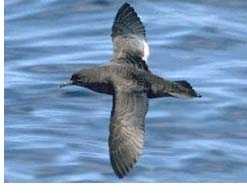Stephen Totterman (Empire Vale, New South Wales, Australia) writes on-line in the open-access journal Marine Ornithology on differences in measuring Short-tailed Shearwaters Puffinus tenuirostris as study skins or live specimens
The paper’s summary follows:
“External biometrics have many applications in ornithology, and study skins are a major source of these measurements. However, measurements can be imprecise, and skins tend to shrink when they dry — two problems rarely investigated for petrels (family: Procellariidae). This study examined measurement error and shrinkage for 15 biometrics, using Short-tailed Shearwater Puffinus tenuirostris as the subject species. Random measurement error, defined as the variability of repeated measurements of a particular character taken on the same individual relative to its variability among individuals in a particular group, ranged from 0.3% for head plus bill length in dry specimens to 36% for tarsus width in freshly dead birds. Shrinkage of skin specimens stabilised within 2–5 months after preparation. Average fresh-dry shrinkage ranged from 0.2% for head plus bill to 12% for tarsus height. A new method was used to estimate shrinkage variability among individuals. “Shrinkage variation,” defined as the proportion of unexplained variance (1 – r2) in the correlation between paired fresh and dry measurements of a particular character after correcting for measurement error, ranged from 0% for wing chord to 33% for bill base width. More robust biometrics from this study were measurements of large, inflexible characters with well-defined measurement “landmarks.”

Short-tailed Shearwater, photograph by Mark Carey
Reference:
Totterman, S.L. 2016. Random measurement error and specimen shrinkage in Short-tailed Shearwaters Puffinus tenuirostris. Marine Ornithology 44: 11-20.
John Cooper, ACAP Information Officer, 08 March 2016

 English
English  Français
Français  Español
Español